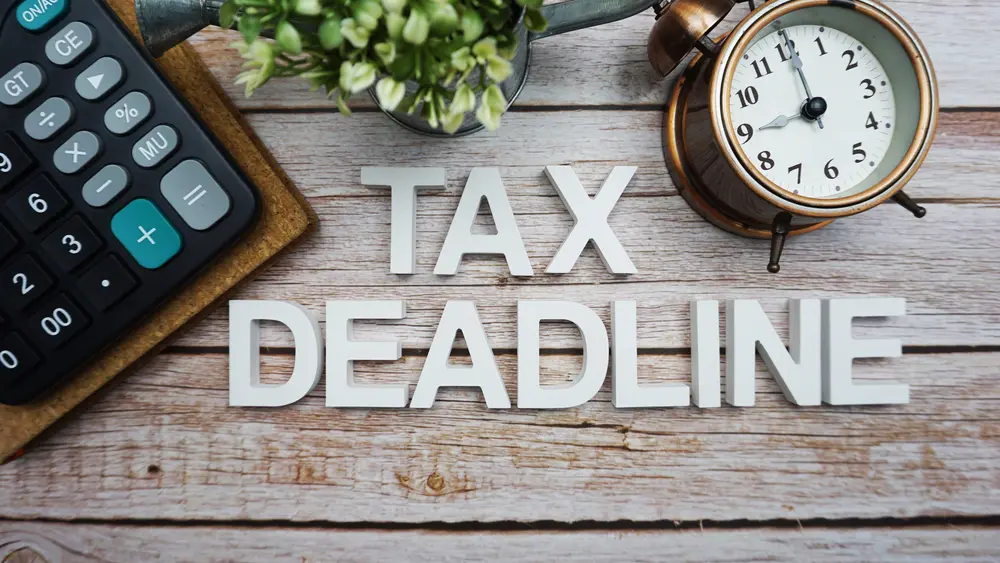The Important Tax Deadlines to Remember in Cannabis
LOS ANGELES—As we enter 2025, it’s crucial for individuals and businesses to keep track of key tax deadlines. Missing these dates can lead to penalties, interest charges, and wasted opportunities for tax savings. At Growise CPAs, we understand the complexities of tax compliance, especially in the cannabis and psychedelic industries. So, let’s outline the critical tax deadlines you should keep in mind throughout the year.
Key Tax Dates for Individuals
- January 15, 2025: Fourth Quarter Estimated Tax Payment Due
If you are self-employed or have income that is not subject to withholding, this is your final estimated tax payment for 2024. This is essential for managing your tax liability and avoiding underpayment penalties.
- January 31, 2025: W-2 and 1099 Forms Due
Employers must send W-2 forms to employees by this date. In addition, certain 1099 forms, such as Form 1099-NEC for self-employment income, are also due.
- April 15, 2025: Tax Day
This is the deadline for filing your federal income tax return (Form 1040) for calendar year 2024. If you need more time, you can file an extension using Form 4868, which will extend your deadline to October 15.
- April 15, 2025: First Quarter Estimated Tax Payment Due
Individuals should also be aware that their first estimated tax payment for 2025 is due on this date.
Important Tax Dates for Businesses
- March 17, 2025: Partnerships and S Corporations Deadline
Partnerships (Form 1065) and S Corporations (Form 1120-S) must file their returns by this date. If you need more time, you can request an extension until September 15, but remember that extensions only apply to filing returns, not payments.
- April 15, 2025: C Corporations Deadline
C corporations must file their returns (Form 1120) by this date as well. If you need more time, you can request a six-month extension until October 15.
- June 15, 2025: Second Quarter Estimated Tax Payments Due
Businesses should be mindful of their estimated tax payments due on this date to avoid penalties.
- September 15, 2025: Third Quarter Estimated Tax Payments Due
This date marks the extended deadline for partnerships and S corporations that filed for an extension.
- October 15, 2025: Extended Deadline for C Corporations and Individuals
If you filed for an extension earlier in the year, this is your final deadline to submit your returns without incurring additional penalties.

FYA: Given the devastation caused by the recent California wildfires, you may find that the IRS often extends tax filing deadlines for business owners and companies affected by natural disasters. You can check IRS Tax Relief in Disaster Situations to see if you qualify.
What Happens If You Miss a Deadline?
Missing a tax deadline can lead to significant financial consequences, including penalties and interest charges. If you fail to file your tax return by the due date, the IRS imposes a failure to file penalty, which is 5% of the unpaid taxes for each month your return is late, up to a maximum of 25%. If you file your return but do not pay the taxes owed, you will incur a failure to pay a penalty of 0.5% of the unpaid taxes for each month they remain unpaid. Additionally, interest accrues on any unpaid tax from the original due date until it is paid in full, compounding the financial burden.
For individuals who miss the filing deadline but are owed a refund, you may still receive it if you file within three years from the original due date. However, if you owe taxes and fail to pay on time, penalties will continue to accrue until the balance is settled. Businesses face similar consequences; S corporations and partnerships that miss their March 15 deadline may incur penalties based on their income levels.
Repeatedly missing deadlines can lead to increased scrutiny from the IRS, potentially resulting in audits or more severe penalties. To mitigate these risks, it’s crucial to stay organized and proactive about tax obligations. If you’ve missed a deadline or are unsure how to proceed, consulting with a qualified CPA can provide valuable guidance tailored to your specific situation.
While this article covers significant federal deadlines, many others may apply based on individual circumstances or state-specific regulations. Keeping track of these dates can be overwhelming; therefore, engaging with professionals who specialize in tax planning can be beneficial. At Growise CPAs, we offer support in managing your tax obligations efficiently so that you don’t wait until the last minute.
Tips to Avoid Tax Penalties
- Delve into the complexities of federal and state laws, especially IRS Section 280E, as well as specific tax implications.
- Develop and implement a tailored approach to tax planning and compliance.
- Ensure compliance with state-specific tax obligations, including sales taxes on cannabis products and any additional excise taxes that may apply.
- Be aware of local regulations that may impose additional taxes or fees on cannabis operations. These may include licensing fees, local sales taxes, or even special assessments.
- Stay organized by marking important deadlines on your calendar and setting reminders well in advance.
- If you cannot meet a deadline, consider requesting an extension; however, remember that extensions do not extend payment deadlines.
- Maintain detailed records of all income and expenses throughout the year to simplify filing and ensure accuracy.
- Stay informed of changes in tax laws that may affect your obligations.
- Implement robust inventory management systems to track product costs accurately. This will help ensure that you maximize your COGS deductions and comply with both tax laws and regulatory requirements.
- Utilize accounting software that can streamline financial management processes by sending reminders for upcoming deadlines.
- Consider partnering with a CPA who specializes in cannabis taxation to develop a comprehensive tax strategy tailored to your business needs. They can help identify opportunities for savings and ensure compliance with all applicable laws.
- Stay abreast of legislative changes that may affect your business operations or tax obligations. Engaging with industry associations can provide valuable insights into upcoming changes.
Bottom Line
Understanding and adhering to essential tax deadlines is crucial for both individuals and businesses to ensure compliance and optimize financial outcomes. At Growise CPAs, we are dedicated to helping our clients navigate these complexities with confidence through expert guidance specifically customized for the cannabis and psychedelic industries. By staying organized and proactive about your tax obligations, you can focus on what truly matters—growing your business wisely.
Copyright Highly Capitalized Network and Growise CPAs © 2025 ALL RIGHTS RESERVED. THANKS TO GROWISE FOR THIS INFORMATION. Growise CPAs is a trusted accounting firm that specializes in supporting cannabis and psychedelics businesses with tailored financial solutions.
Led by Kate Dymedenko, a seasoned CPA with deep expertise in the cannabis sector, Growise CPAs focuses on maximizing profitability for clients by navigating complex tax laws and improving financial strategies. Kate and her team help clients optimize their operations, minimize tax liabilities, and stay compliant in a rapidly changing industry.
To find out how you can maximize profitability for your cannabis business, connect with Kate Dymedenko and the Growise CPAs team. Visit www.growisecpas.com or email [email protected].






























